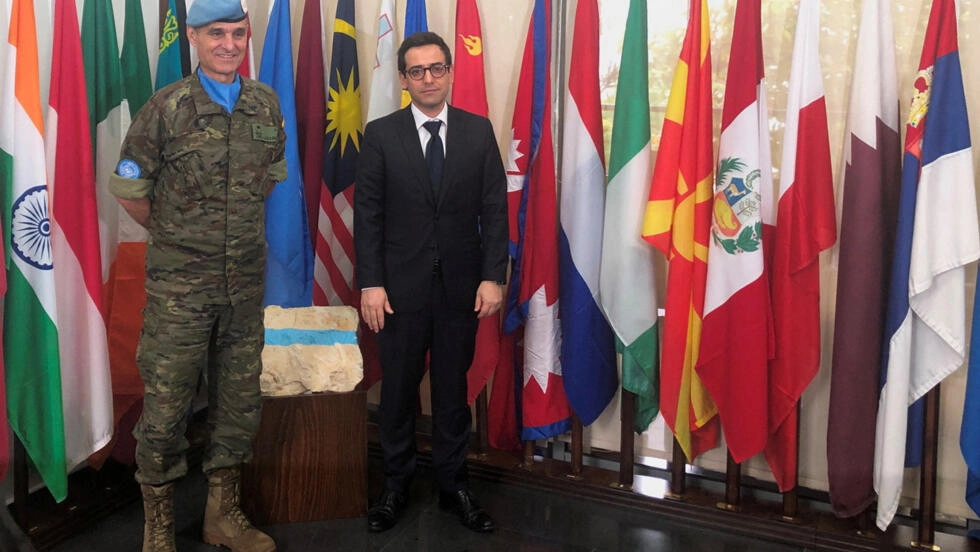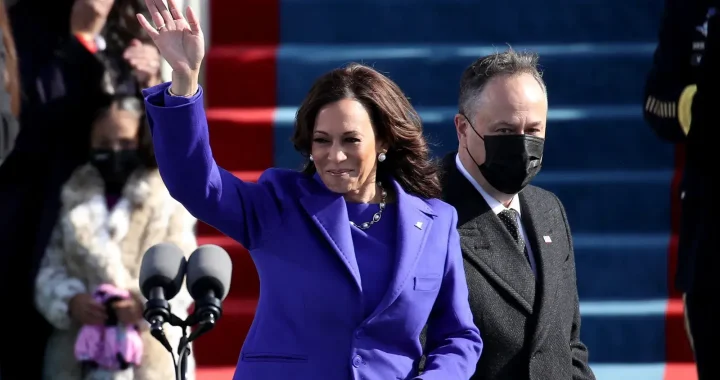France’s FM in Lebanon to Prevent Israel-Hezbollah Conflict

The French Foreign Minister (FM), Stéphane Séjourné, visited Lebanon to discuss and to prevent Israel-Hezbollah, which is supported by Iran.
As a historical partner to Lebanon, France is seeking to refine a roadmap that both sides could accept to ease tensions.
Israel and the Hezbollah group in Lebanon have exchanged tit for tat strikes in recent months, but these have increased since Iran launched a barrage of missiles on Israel in response to a suspected Israeli attack on the Iranian embassy in the Syrian capital Damascus that killed members of Iran’s Revolutionary Guards Corps’ overseas Quds Force.
“Today, if I look at the state of the situation, if there had been no war in Gaza, we would perhaps be talking about war in South Lebanon given the state of strikes and impacts in this area”, French Foreign Minister Stéphane Séjourné said after a visit to the United Nations Interim Force in Lebanon (UNIFIL), in Naqoura on Sunday.
“I’ll pass messages and we’ll make proposals here in Beirut to the political authorities to stabilise this area and avoid war and so that everyone takes their responsibilities,” he added.
ALSO READ: The Voice of France Star, Kendji Girac Seriously Hurt After Shooting
Keep momentum
Earlier this year, Séjourné proposed an initiative that would see Hezbollah’s elite unit pull back 10 kilometres from the Israeli border, while Israel would halt strikes in southern Lebanon.
France’s proposal, which has been discussed with partners, notably the United States, has not moved forward, but Paris wants to keep momentum in talks and underscore to Lebanese officials that Israeli threats of a military operation in southern Lebanon should be taken seriously.
Hezbollah has maintained it will not enter any concrete discussion until there is a ceasefire in Gaza, where the war between Israel and Islamist militant group Hamas has entered its sixth month.
- France proposes Hezbollah withdrawal, border talks for Israel-Lebanon truce (FM in Lebanon to Prevent Israel-Hezbollah)
Israel has also said it wants to ensure calm is restored on its northern border so that thousands of displaced Israelis can return to the area without fear of rocket attacks from across the border.
“The objective is to prevent a regional conflagration and avoid that the situation deteriorates even more on the border between Israel and Lebanon,” foreign ministry deputy spokesperson Christophe Lemoine said at a news conference.
Lebanese Prime Minister Najib Nikati and Lebanese army chief Joseph Aoun met French President Emmanuel Macron earlier this month, where they discussed the French proposal.
ALSO READ: Israel Military Intelligence Chief, Major General Aharon Haliva Quits Over 7 October
Political deadlock
In a letter addressed to the French embassy in Beirut in March, Lebanon’s foreign ministry said Beirut believed the French initiative would be a significant step towards peace and security in Lebanon and the broader region.
French officials say the responses so far have been general and lack consensus among the Lebanese. While they deem it too early for any form of accord, they believe it is vital to engage now so that when the moment comes both sides are ready.
Paris will also underline the urgency of breaking the political deadlock in the country. Lebanon has neither a head of state nor a fully empowered cabinet since Michel Aoun’s term as president ended in October 2022.
Israel has remained cautious on the French initiative, although Israeli and French officials say Israel supports efforts to defuse the cross-border tensions.
- Why France and the Middle East have such a deep and lingering past
France currently has 700 troops stationed in southern Lebanon as a component of the 10,000-member United Nations peacekeeping unit.
Authorities have indicated that the UN soldiers are facing challenges in fulfilling their duties, and France is suggesting enhancements to the operation by providing support to the Lebanese military.
Following the visit to Lebanon, Séjourné is scheduled to attend a regional summit in Saudi Arabia, followed by a trip to Israel.
Arab and Western foreign ministers, including US Secretary of State Antony Blinken, will engage in informal discussions during a World Economic Forum gathering in Riyadh to address the Gaza conflict with Palestinian President Mahmoud Abbas.
 Breaking News – Kamala Harris Declares Intention To Run For Presidency
Breaking News – Kamala Harris Declares Intention To Run For Presidency  Obama joins Democrats urging Biden to ‘Reconsider’ Campaign
Obama joins Democrats urging Biden to ‘Reconsider’ Campaign  Eric Trump Demands Answers from Secret Service Director
Eric Trump Demands Answers from Secret Service Director  Europe Should Prepare for President JD Vance
Europe Should Prepare for President JD Vance  Is Anywhere Safe for Paul Kagame’s Critics?
Is Anywhere Safe for Paul Kagame’s Critics?  RNC Address Beef: Amber Rose Fires Back At Joy Reid
RNC Address Beef: Amber Rose Fires Back At Joy Reid  Biography Of Kamala Harris, Her Early Life, And Road To Presidency
Biography Of Kamala Harris, Her Early Life, And Road To Presidency  Top Achievements Of President Joe Biden You Might Have Missed
Top Achievements Of President Joe Biden You Might Have Missed